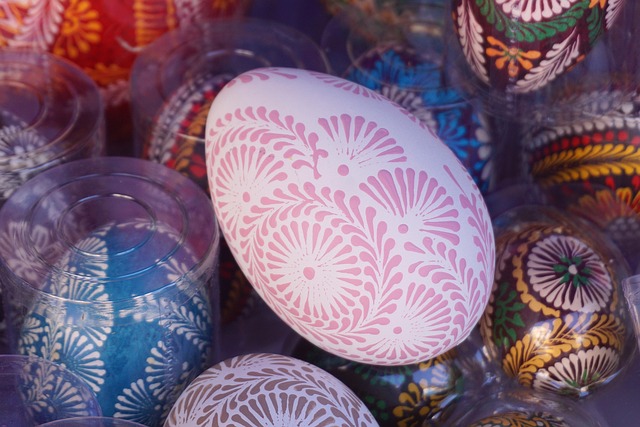For male couples considering IVF with donor eggs, frozen eggs offer significant advantages over fresh eggs. Frozen eggs have a longer shelf life (up to 10 years), provide more flexible timing, reduce costs by eliminating repeated procedures, and ensure high-quality eggs are readily available. While fresh eggs offer immediate availability and potentially higher success rates, they require prompt use within 24-48 hours. Frozen eggs align with modern lifestyles where timing may be unpredictable, offering peace of mind during the emotional fertility journey.
“Navigating the world of IVF with donor eggs for male couples involves a crucial decision: fresh versus frozen. This choice impacts pregnancy success rates and treatment accessibility. Understanding the nuances between fresh and frozen donor eggs is essential for making an informed decision. In this guide, we’ll explore the advantages and disadvantages of each option, helping you weigh the benefits and considerations to optimize your IVF journey.”
Understanding Fresh vs Frozen Donor Eggs
When considering IVF with donor eggs for male couples, understanding the difference between fresh and frozen donor eggs is crucial. Fresh donor eggs are collected from a donor and immediately prepared for fertilization. This method offers several advantages, including potentially higher fertility rates due to the youthfulness and quality of the eggs. However, it’s limited by the need for timely insemination within 24 to 48 hours after retrieval, which can be less flexible in scheduling.
In contrast, frozen donor eggs are those that have been harvested, processed, and stored at ultra-low temperatures for later use. This process preserves their viability for extended periods, up to 10 years or more. While the initial processing might slightly impact fertility rates, frozen eggs provide a greater window for insemination, allowing couples to align treatment with their personal timelines without compromising on egg quality.
Advantages and Disadvantages of Fresh Eggs
Using fresh donor eggs in IVF treatments for male couples offers several advantages. Fresh eggs are typically younger and more vibrant, increasing the likelihood of successful fertilization and implantation. They also allow for better control over the egg’s quality and origin, providing peace of mind for prospective parents. Additionally, the absence of freezing and thawing processes can reduce potential genetic damage, enhancing the overall health of the embryo.
However, there are also disadvantages to consider. Fresh eggs may have a shorter shelf life, requiring prompt use after retrieval, which could limit flexibility in scheduling treatments. Moreover, the availability of fresh donor eggs is often limited, potentially leading to longer waiting times for couples eager to begin their family-building journey. Comparatively, frozen donor eggs can offer more options and consistency in timing, making them a viable alternative for male couples undergoing IVF with donor eggs.
Benefits and Considerations of Frozen Eggs
Frozen donor eggs offer several advantages in the context of IVF for male couples. One significant benefit is their extended shelf life, which can preserve the quality and viability of the eggs for an extended period. This option is particularly appealing due to the time it takes for egg retrieval, processing, and subsequent IVF cycles. By freezing eggs, couples can avoid the urgency often associated with fresh donor eggs, providing them with a more flexible timeline.
Furthermore, frozen eggs allow for cost-effectiveness. The initial freeze and storage process eliminates the need for repeated procedures, reducing overall expenses. This is especially beneficial for same-sex male couples who may opt for donor egg programs. It also ensures that high-quality eggs are available when they’re needed, offering peace of mind during what can be an emotionally charged and complex fertility journey.
Making an Informed Decision for IVF
Making an informed decision regarding IVF with donor eggs is a crucial step for male couples embarking on their parenthood journey. It’s essential to weigh the benefits and considerations of both fresh and frozen donor options, as each has its unique advantages. Fresh donor eggs offer immediate availability, providing a faster path to treatment. However, they are more susceptible to degradation over time, requiring prompt use within a specific window. On the other hand, frozen donor eggs ensure longevity, allowing couples to store them for an extended period before use. This option is ideal for those who need more flexibility in their timing or want to avoid the potential risks associated with aging fresh eggs.
For male couples, understanding these nuances is vital. Frozen donor eggs can be a game-changer, offering a reliable and safe solution. They provide peace of mind, knowing that the quality remains consistent, regardless of when they are utilized. This choice also aligns well with modern lifestyles where flexibility and timing can be unpredictable. By embracing frozen donor eggs, couples can focus on nurturing their future family without the added pressure of time constraints.
When considering IVF with donor eggs for male couples, understanding the distinction between fresh and frozen options is pivotal. Each has its unique advantages and considerations. Fresh donor eggs offer higher fertility potential due to their younger age and less-damaged DNA, while frozen eggs provide convenience, cost savings, and a reduced risk of genetic abnormalities. After weighing these factors, making an informed decision allows couples to navigate the IVF process with confidence, opening doors to building families successfully.
